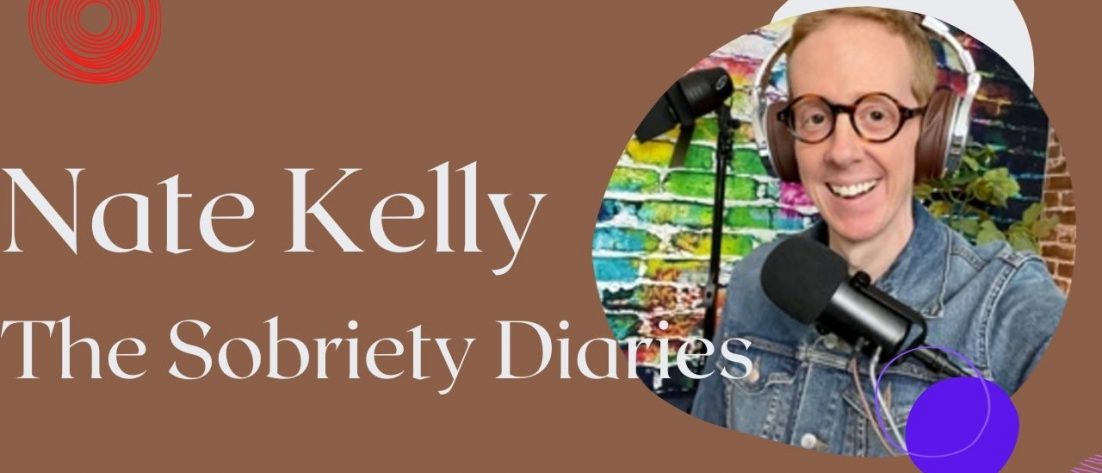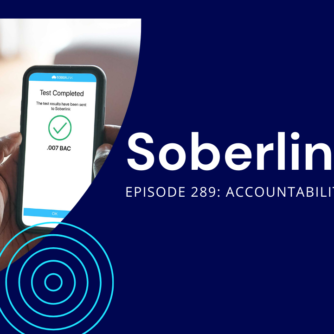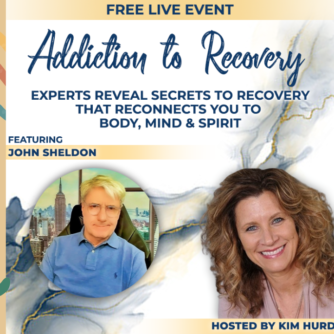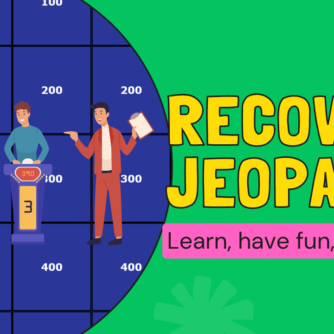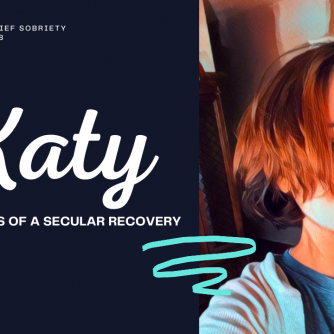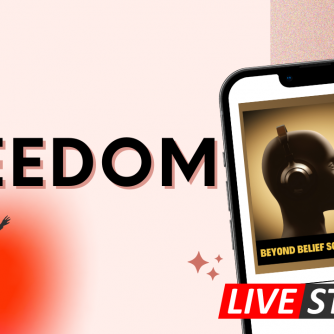Meet Nate Kelly, host of a new video podcast called “The Sobriety Diaries.” Nate shares his story of recovery, how he got involved with podcasting about addiction recovery, and his hopes for the new podcast. I enjoyed the conversation and I look forward to following Nate’s podcast and YouTube Channel.
Subscribe to Nate’s YouTube Channel
Subscribe to The Sobriety Diaries Podcast
Transcript
John: This is the Beyond Belief Sobriety podcast, where we examine topics of interest to people who seek a secular path to recovery from addictions of all kinds. Today, I have a guest who I’m excited to speak with, and I think you’re going to enjoy hearing from him and learning about him.
His name is Nate and he is the host of The Sobriety Diaries, which is a new podcast that’s debuting now. He’s got a couple of episodes already out, and he’s got a fantastic YouTube channel, and I’m anxious to learn about him and how he got started in all of this.
Welcome, Nate, to Beyond Belief Sobriety. How are you doing?
Nate: Thank you so much, John. I’m well. How are you?
John: I’m doing OK. It’s the weekend and I love that. And I’m speaking with somebody in recovery and doing a YouTube video, and all of that. Some of my favorite stuff is going on right now. So, that’s cool.
Nate: What more could we ask for?
John: That’s right. That’s right. So generally what we do here, is get to know somebody through their story of recovery. I wonder if you can go into that a little bit before we talk about how you got into podcasting?
Nate: Absolutely. I think that is the core of what I do. So, I’m happy to share that with you. Alcoholism was my drug of choice. And it started sort of at an early age. I was always sort of apart from the group and never, you know, felt like I fit in and never comfortable in my own skin, and I think we hear that from addicts a lot of the time. And it’s interesting to me how something that secluded us, so often in our upbringing or our childhood brings us together so closely later on in life, but yeah, I just was never comfortable in my own skin.
My mom will tell you now, and we talk about this openly, that she thought that I was always a troubled soul. And I think that describes it kind of accurately as a child. I had a good childhood, though, my parents are hard-working people, and they did the best that they could. I have an older sister and I was raised in small-town Ohio. So, a Midwest boy with some good values and a nice blue-collar working-class family.
There is sort of an era that stands out and I can still remember it very clearly. When I was 10 years old, my parents sat me on the couch between the two of them one day when I came home from school, and told me that they were divorcing. You know, just the word “divorce” at the time, just turned my stomach. It just felt like a weight to a 10-year-old, and it was something that I could just add to the list of being different.
Nate: So, you know, with that being said, again, my parents continued to do the best they could. They ended up living two blocks from one another and as co-parents, they did very well. So, again, none of these things I contribute to leading to my alcoholism. I think they’re simply part of my story. And, you know, got me to this moment here with you, John.
So, you know, that continued into adolescence and into junior high. I started to pinpoint things a little more as I developed a bit and I started to realize things about myself and, you know, identify that as being a gay young man in small-town Ohio and, you know, in the early 90s, it just wasn’t something that I was going to discuss with anyone and something that was not going to be a part of my life at that time.
So these sorts of discoveries and feelings and major parts of my life were just being bottled up and kept inside and kept to myself. And again, another thing that I could sort of chalk up on the differences. Again, small town, I hate to keep using that reference, but it is a framework for my life., and I think that is something a lot of people can probably relate to.
Drinking at an early age, unfortunately, was just something that was almost, I don’t want to use the word “expected”, but it was something that I was anticipating and something that was sort of accepted and happened on a regular basis.
Nate: Kids started drinking in high school so we would get a case of beer and head out to the field somewhere. Or, you know, if someone’s parents weren’t home, we were at that house for sure. But yeah, there was an anticipation to start drinking at an early age. Sure enough, you know, I think at the end of my freshman year, maybe the sophomore year of high school, my sister was off to Ohio University and I couldn’t wait to go visit her.
I had my first major experience with alcohol in Athens, on-campus at OYU and, you know, the anticipation and the planning was all part of it and, although I woke up in a miserable state with the worst headache and, you know, a hangover that no 16-year-old could probably handle, I couldn’t wait to do it again and thus started the life of an alcoholic.
Looking back and knowing what I know about addiction and my personal journey. I drank alcoholically from that first sip, John, at age 16. So, you know, from that point, obviously, I was still in high school, so we weren’t drinking every day, but it was definitely always discussed and always a topic of conversation. You know, what was coming up this weekend? Whose house could we sort of crash? Who was buying the beer? So, I wasn’t certainly a daily drinker in high school, but it was always a focus and it was always that sort of lead-up and excitement for the anticipation.
John: You know, I read somewhere once that addiction is actually a disease of adolescence, and it makes sense because that’s the time when we’re learning how to be social creatures and to get out there and meet people and do things. Then, we add alcohol to the mix. Alcohol becomes the center of our social world when we’re that age.
Nate: Right. Yeah, that’s exactly right. And that first time, it was like this magical elixir that, you know, people thought I was funny and I was relaxed and loose and I could, you know, associate better with anyone and talk to talk to anyone. So, I couldn’t agree more with that.
And for me, for my personal journey, you know, it started as an obsession of the mind and it turned into that physical addiction. So, my disease is a mental obsession and a physical addiction that at this time started to manifest itself.
I had such a good time at OYU, and I decided to take my budding alcoholic self there for my own college career. And, you know, I was probably not equipped to deal with life coming from a small town and, you know, as a budding alcoholic to live life on my own. Sure enough, you know, I sort of managed to make it through the academic side of life at a university, but I was definitely more focused on the social aspect of things and the party scene.
John: Our stories are pretty similar and I can relate a lot. I also started off pretty early in life and I and I also had that feeling of not fitting in. In my case, I was an army brat and we moved around a lot. I learned to adapt to whatever was going on around me so that I could somehow fit in, but I always felt like an outsider.
I discovered alcohol early on, and I had a good childhood, but there was some uncertainty in my household. I never knew what was going to go on. I found alcohol and I started using it as medicine, not really realizing it, but I used it to change the way I felt. So, you know, in that respect, alcohol was a problem for me for the get-go as well.
Nate: Definitely, yeah. This was sort of when I was taking it to the next level and I started realizing the consequences of my drinking. My first DUI. Mouthing off at parties and getting punched in the face.
Nate: I mean, look at me. I can’t even really defend myself.
John: I went down on the first punch.
Nate: As did I. And a broken nose and some reconstructive surgery later. No lesson learned. It’s just sort of what we do.
When I graduated, I moved here to Columbus and, you know, started making waves in the restaurant industry and started off a fairly successful career and was offered a multiunit manager position in Maryland. So complete culture shock. Midwest boy going to urban D.C. and eastern Maryland and Virginia to manage restaurants.
Meanwhile, not knowing anyone there and just thinking farther into myself and that isolation, drinking where it was more the misery drinking. And, you know, at that point there was really nothing fun about it. I know that my story sort of turned a little interesting here. I guess if I’ve bought anyone out there I’m sorry up to this point, but stay tuned.
So I. I was in Maryland for about a year and I was coming home for the holidays, but prior to that I had had this nagging headache for about two weeks and I almost thought it was a pinched nerve in my neck. You know, I thought I’d slept wrong. And almost just like a crick in your neck, like we’ve all had and, you know, went on and on and on. And two or three weeks.
I was home here in Ohio for the holidays. And I was at my sister’s house and we were sort of prepping for a party the next day and just hanging out. Of course, I was drinking and all of a sudden I feel like I get hit in the head with a hammer and it’s excruciating pain. The whole right side of my body went numb and limp. And, you know, we immediately go to the E.R. and people are rushing around.
I guess long story long, I had a stroke at age 30 as a direct result of my alcoholism. Just beating myself up and degrading my body for the better part of two decades or so, and I was in the Neuro ICU for 14 days and I learned to walk again at age 32 and…
John: God, that’s tough.
Nate: And I did a month of inpatient rehabilitation, physical rehabilitation to a nonalcoholic. This is probably the point where nobody would ever pick up another drink.
John: I was kind of wondering if you were going to…
Nate: However, I was not quite finished and I laid in that bed.
John: Did you have any thought at all, though, that the two were connected? I mean, did the doctors tell you that alcohol had something to do with it?
Nate: Of course, that was in my mind, but I did my very best to hide that and downplay it on every occasion.
John: That’s what blew me away when I came to realize I had a problem. How I could have denied what was so obvious.
Nate: Yes. Yeah, exactly what I did. And I laid in that bed for six weeks and just thought about what my first drink would be. Jesus. And because I was there over New Year’s Day, it was champagne.
So, I got out of the hospital and at this time, my best friend and one of my drinking buddies, but so much more than that, I had started a path of recovery and she did it. She did it in the most perfect way. Subtlely just suggesting a program of recovery and highlighting areas of her own life that had gotten better because of not drinking alcohol.
You know, I had a couple more months in me, but I eventually became willing to throw my hands up. It was just a random day in my apartment, my sister had come over because I had, you know, sunk into probably a two-week bender where, you know, I was trying to go to work but couldn’t and just drinking all day and waking up to a glass of chardonnay. And, you know, she’d come and check on me. And one day I looked at myself in the mirror and was so disgusted that I walked out of the bathroom and I said, let’s do it. And we were in the car 30 minutes later.
John: Wow. So did you go to a treatment center?
Nate: We did. She had been researching and sort of had some contacts in her back pocket and we were on our way to an inpatient treatment facility. And by the grace of my higher power, they had a bed ready and I was in there that night.
John: Wow! I certainly can relate to your story. That moment, though, when we come to realize that we need help. I know that it was difficult for you to even talk about it. It is for me, too. Even if I see it in movies when a person reaches that moment, I start crying, you know, because it’s like years and years of pent-up stuff all coming out at that moment. And we realize that we can’t handle our own life. It’s frightening. And not only that but what freaked me out was that I was lying to myself all these years. I couldn’t even trust my own thinking anymore.
Nate: Exactly right. And to your point, I believed every lie that I told myself. So, it was not my decision that day, John. And I know that you can probably relate to that because if it were left up to me, I wouldn’t be sitting here with you today and. The power greater than my own decision-making decided that was the day and by the same grace, that was almost six years ago and that was my last sip of alcohol. October 9th of 2015.
John: Since we know that recovery is definitely a process of change that takes place over our lifetime, was there any major revelation or evolution in your recovery that you can think of that maybe you didn’t expect or that you think is somewhat interesting, or a direction that you’ve gone that you didn’t think you would go?
Nate: I think you’re looking at it honestly. From that shy, reserved boy who not once raised my hand in class, and now live streaming on YouTube. This is all born from the want and the need to truly help people and. Give it away to keep it, you know? If I rest on my laurels and I think that I’ve got it licked and, you know, I’m not doing the work and giving, you know, I hate to use all the words and all the phrases, you know what I’m talking about. But, you know, if we don’t help the next struggling person and try to offer guidance or share our stories at the least. That’s my insurance policy of staying sober, so I have to work on that every day
John: And, you know, it does help. It’s incredible. I love YouTube, by the way. And there’s a great recovery community here. And the thing about YouTube channels like yours and podcasts like yours is around them a community is built. You know, people will listen to your podcast and it means everything to them to hear their story through another person. Especially in the last year or so when we’ve been kind of isolated from other human beings. Having that intimate connection from a podcast just means everything to someone, especially early on in their recovery. I wonder if you’ve ever heard from anyone or anybody from some of the videos that you’ve done.
Nate: I have. I appreciate you bringing up the YouTube channel, that’s sort of how I transitioned into this format. I started really just talking about my own recovery, more so in a blog setting, just a very informal format for the same reason. It just lent itself to this format better and to your point to sort of contributing to that community that has been so welcoming already, and, yes, I’ve had many, many comments and people reach out and ask if, you know, hey, do you have any contacts in Minnesota? Have you heard of any treatment facilities in Arizona that are good? So I’m truly humbled that people have, you know, perhaps started their recovery journey because of it. And I hope that will continue.
John: Yeah, I know. Humbling is the word. I don’t know what to say when I get an email from somebody or if I meet somebody who listens to the podcast, and they tell me how much it means to them. I just don’t even know how to respond other than say, “thank you so much for letting me know that that inspires me to continue.” But this helps me just as much. This has become a huge part of my recovery, and I’m sure that it has become that for you as well.
Nate: Absolutely. Yes, it has. And you know, whether you work a program, or you have you found your way to a better life on whatever journey. I recorded an episode yesterday with the young lady, and she was very emotional. Her father is in recovery as well, and ninety-nine percent of the interview was based around the fact that we can relate to people that we never would have thought that we would have related to because of this commonality that we have of addiction, and we are willing to share the most intimate and vulnerable times in our lives with strangers, for lack of a better word. I think it’s just so uniting. I mean, it just blows me away every day.
John: So do you have a vision of where you would like to see The Sobriety Diaries go? I had absolutely no planning whatsoever when I started this. Yeah.
Nate: You know, I. I spent a lot of time doing my research and educating myself on the format and how to grow an audience and how to deliver my message, and, you know, I don’t come from a communications background.
John: Man, your quality is excellent.
Nate: Well, thank you. I, I do work in H.R., so I do a lot of recruiting and interviewing. So that lends itself and as you know, imagine showing up on a resume interview for a job and I’ve got all this behind me and pretty cool people get a little intimidated. But I think that’s where you know, I’m an empathetic listener and I like to grab on to the smaller things that people may just say fleetingly and not think that, you know, would be important or sort of guide the conversation.
I like to grasp on to those little points and dive into them a little more and sink into the conversation a little more and, you know, I think that I’ve sort of found a rhythm now, and I just want to share as many stories as possible and help people. My true goal is to help people, and I say at the close of every show, if this episode helps one person, I think our job is done.
John: Yeah, well, I think that you will and you already got over a thousand subscribers on your YouTube channel. I’m looking forward to watching it grow over time. I understand that you’re going to be doing a live stream today.
Nate: We are, yes. So, I invited back a few of my guests that I recorded with already. We will sit down in a sort of in a roundtable format and just kind of test the waters out a little bit to see if perhaps could be a regular feature on the channel. And then we’re we’ll throw it up as a regular episode on the Apple podcast and, you know, wherever you listen to so you can find it there. But we will be live at two-thirty eastern today at YouTube.com/natekelly.
John: Ok, OK. I plan on going to that. That’s two-thirty Eastern Time, correct? So thank you so much for coming on and talking about your podcast and your videocast YouTube channel. I want to talk to you sometime just about the technical stuff. I’m a bit of a nerd when it comes to the podcasting stuff. I think that you’ve got a wonderful studio back there and your sound quality is amazing. I can learn something from you. Anyway, thank you again. I really appreciate it.
Nate: Thanks, John.
